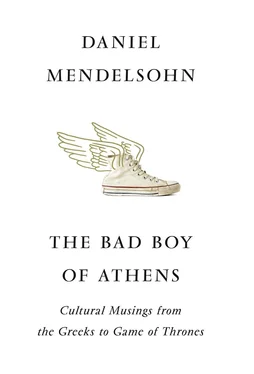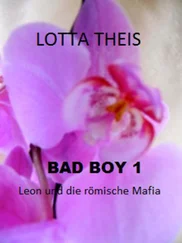William Collins
An imprint of HarperCollins Publishers
1 London Bridge Street
London SE1 9GF
www.WilliamCollinsBooks.com
This eBook first published in Great Britain by William Collins in 2019
Copyright © Daniel Mendelsohn 2019
Cover image © Shutterstock, wings by Jo Walker
Daniel Mendelsohn asserts the moral right to be identified as the author of this work
A catalogue record for this book is available from the British Library
All rights reserved under International and Pan-American Copyright Conventions. By payment of the required fees, you have been granted the non-exclusive, non-transferable right to access and read the text of this e-book on screen. No part of this text may be reproduced, transmitted, down-loaded, decompiled, reverse engineered, or stored in or introduced into any information storage and retrieval system, in any form or by any means, whether electronic or mechanical, now known or hereinafter invented, without the express written permission of HarperCollins.
Source ISBN: 9780007545155
Ebook Edition © July 2019 ISBN: 9780007545162
Version: 2019-05-09
For
M. M. McCabe,
Patrick McGrath,
and all my other McGrath cousins
1 Cover
2 Title Page
3 Copyright
4 Dedication
5 Contents
6 Preface
7 The Robots Are Winning!
8 Girl, Interrupted
9 Not an Ideal Husband
10 The Bad Boy of Athens
11 Alexander, the Movie!
12 The Strange Music of Horace
13 Epic Fail?
14 The Women and the Thrones
15 Unsinkable
16 Not Afraid of Virginia Woolf
17 White or Grey?
18 The Two Oscar Wildes
19 The Tale of Two Housmans
20 Bitter-Sweet
21 The Collector
22 The End of the Road
23 I, Knausgaard
24 A Lot of Pain
25 The American Boy
26 Acknowledgements
27 Also by Daniel Mendelsohn
28 About the Author
29 About the Publisher
Landmarks CoverFrontmatterStart of ContentBackmatter
List of Pages iii iv v 1 2 3 4 5 6 7 8 9 10 11 12 13 14 15 16 17 18 19 20 21 22 23 24 25 26 27 28 29 30 31 32 33 34 35 36 37 38 39 40 41 42 43 44 45 46 47 48 49 50 51 52 53 54 55 56 57 58 59 60 61 62 63 64 65 66 67 68 69 70 71 72 73 74 75 76 77 78 79 80 81 82 83 84 85 86 87 88 89 90 91 92 93 94 95 96 97 98 99 100 101 102 103 104 105 106 107 108 109 110 111 112 113 114 115 116 117 118 119 120 121 122 123 124 125 126 127 128 129 130 131 132 133 134 135 136 137 138 139 140 141 142 143 144 145 146 147 148 149 150 151 152 153 154 155 156 157 158 159 160 161 162 163 164 165 166 167 168 169 170 171 172 173 174 175 176 177 178 179 180 181 182 183 184 185 186 187 188 189 190 191 192 193 194 195 196 197 198 199 200 201 202 203 204 205 206 207 208 209 210 211 212 213 214 215 216 217 218 219 220 221 222 223 224 225 226 227 228 229 230 231 232 233 234 235 236 237 238 239 240 241 242 243 244 245 246 247 248 249 250 251 252 253 254 255 256 257 258 259 260 261 262 263 264 265 266 267 268 269 270 271 272 273 274 275 276 277 278 279 280 281 282 283 284 285 286 287 288 289 290 291 292 293 294 295 296 297 298 299 300 301 302 303 304 305 306 307 308 309 310 311 312 313 314 315 316 317 318 319 320 321 322 323 324 325 326 327 328 329 330 331 332 333 334 335 336 337 338 339 340 341 342 343 344 345 346 347 348 349 350 351 352 353 354 355 356 357 358 359 360 361 362 363 364 365 366 367 368 ii 369
In the autumn of 1990, when I was thirty years old and halfway through my doctoral thesis on Greek tragedy, I started submitting book and film reviews to various magazines and newspapers, had a few accepted, and within a year had decided to leave academia and try my hand at being a full-time writer.
On hearing of my plans, my father, a taciturn mathematician who, I knew, had abandoned his own PhD thesis many years earlier, urged me with uncommon heat to finish my degree. ‘Just in case the writing thing doesn’t work out!’ he grumbled. Mostly to placate him and my mother – I’d already stretched my parents’ patience, after all, to say nothing of their resources, by studying Greek as an undergraduate and then pursuing the graduate degree – I said yes. I finished the thesis (about the role of women in two obscure and rather lumpy plays by Euripides) in 1994, took my degree, and within a week of the graduation ceremony I’d moved to a one-room apartment in New York City and started freelancing full-time.
This bit of autobiography is meant to explain the contents and, to some extent, the title of the present collection of essays that I’ve published over the past two decades. When I was first settling into my new life, I was eager to leave my academic past behind and write about genres that I’d been passionate about since my teens (opera, film, theatre, music videos, and television) and subjects that exercised a particular fascination for me (not only the ancient past but family history; sexuality, too). This I began to do, as a perusal of the Table of Contents here will show. But fairly early on in my freelancing career, I found myself being asked by editors who knew I’d done a degree in Classics to review, say, a new translation of the Iliad , or a big-budget TV adaptation of the Odyssey , or a modern-dress production of Medea . I ended up finding real pleasure in these assignments, largely because they allowed me to write about the classics in a way that was, finally, congenial to me. My graduate-school years had coincided with a period in academic scholarship remembered today for its risibly dense jargon and rebarbative theoretical prose; writing for the mainstream press about the ancient cultures I’d studied allowed me to think and talk about the Greeks and Romans in a way that for me was more natural, more conversational – more as a teacher, that is, putting my training in the service of getting readers to love and appreciate the works and authors that I myself loved and appreciated. Euripides, for instance, to whom the title of this collection refers: formally experimental, darkly pessimistic in his view of both men and gods, whose existence he repeatedly questions, happy to poke fun at august predecessors such as Aeschylus, he really was the ‘bad boy’ of Athenian letters; in my essay on Fiona Shaw’s performance in his Medea , I saw no reason not to call him just that.
The desire to present the ancient Greeks and Romans and their culture afresh to interested readers – and, as often as not in these essays, to ponder what our interpretations and adaptations of them say about us – informs many of the pieces in this collection. A new translation of Sappho, for instance, provided an occasion to think about why that poet and her intense, eroticized subjectivity means so much to us today – although what she means to us may be quite different from what she meant to the Greeks; Oliver Stone’s blockbuster biopic Alexander , for its part, was a useful vehicle for thinking about why a mania for historical ‘accuracy’ doesn’t always make for good cinema. So, too, with my reconsiderations of Euripides’ vengeful Medea, whose modernity may reside elsewhere than many modern interpreters imagine; or of Virgil’s Aeneid , which may be unexpectedly contemporary in ways that have little to do with its much commented-on celebration of empire.
But most of the essays here are not about the classics per se , although they inevitably, and I hope interestingly, betray my attachment to the cultures I studied long ago. Hence a review of a pair of recent movies about artificial intelligence, Ex Machina and Her , begins – necessarily, as I see it – with a consideration of the robots that appear in Homer’s epics and what they imply about how we think about the relationship between automation and humanity. And an essay written for the centenary of the Titanic disaster sees, in its enduring fascination for popular culture, ghosts of the most ancient of myths: about hybris and nemesis, about greedy potentates and virgin sacrifice, about an irresistible beauty that the Greeks understood well – the beauty of the great brought low.
Читать дальше












